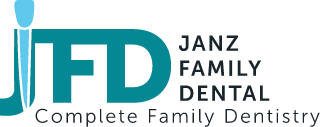Best & Worst Halloween Candy For Your Teeth
It’s difficult to keep up with your children’s oral health when Halloween rolls around.
There are, however, things you can do to look out for their dental hygiene. At Janz Family Dental, children’s dentist in West Edmonton, we take pride in the care and maintenance of your children’s teeth. We know you can’t prevent your children from eating candy this Halloween, but you can at least encourage them to eat the right kind. Here’s a short list of the best and worst candies your kids can eat on October 31st.
BEST
The best candy for your children’s teeth would obviously be no candy at all. Since this is almost impossible during Halloween, here’s a list of treats that won’t rot their teeth:
1. Sugar-free candy
For obvious reasons, sugar free candy is your best bet to prevent your children’s teeth from falling out. With no sugar, there are less bacteria and acid to attack their teeth and cause them to decay.
2. Chocolate/dark chocolate
In the grand scheme of sweets and treats, chocolate is probably your best bet when it comes to avoiding tooth decay. This is mostly due to the fact that it washes off your teeth far more easily than most other candies. To take it a step further, dark chocolate has hardly any sugar, the calcium in dark chocolate can strengthen your teeth and the cocoa beans actually fight bacteria and plaque.
3. Powdered candy
Powdered candy, while not necessarily good for your teeth, is far less detrimental due to the fact that the powder dissolves quickly, allowing it less time to do any serious damage.
WORST
Alternatively, other types of candy, like the ones listed below, are terrible for your children’s teeth. Do your best to avoid these, or you’ll probably need to visit an Edmonton dentist soon after.
1. Gummy/sticky candy
Gummies tend to stick to your children’s teeth for a long time after their initial consumption. They cause sugar to get stuck in between your teeth, and if you don’t brush, could stay on your teeth overnight.
2. Hard candy
The problem with hard candy is that it stays in your mouth for long periods of time. This allows it to deliver a lot of sugar over time, which is highly detrimental to your children’s oral health. This Halloween, help your children avoid candy that’s bad for their teeth. To help maintain a happy and healthy lifestyle for your children, make an appointment with our family dentist in West Edmonton. We care about the health and well being of your family’s teeth, call us today.

